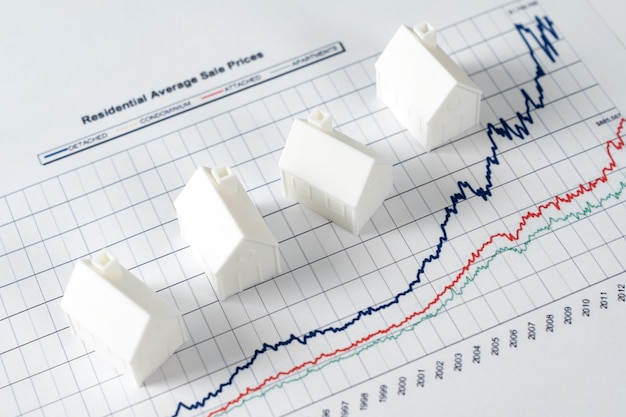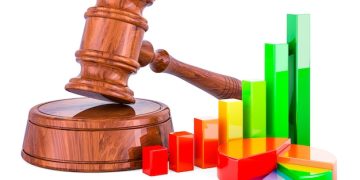Interest Rate Hike: Mortgage Rates Surge by 0.75% – What It Means for You

Anúncios
An expected interest rate hike is set to significantly impact mortgage rates, potentially increasing them by 0.75%, affecting both prospective and current homeowners in the US.
The expected interest rate hike is expected to impact mortgage rates by 0.75%, sending ripples through the US housing market and prompting concerns among potential and current homeowners.
Anúncios
Understanding the Impending Interest Rate Hike
The Federal Reserve’s anticipated decision to raise interest rates has been a significant topic of discussion. This move is primarily aimed at curbing inflation, which has remained stubbornly high despite previous efforts. Let’s delve deeper into what this hike entails and why it’s happening.
What is the Federal Funds Rate?
The federal funds rate is the target rate that the Federal Reserve wants banks to charge one another for the overnight lending of reserves. This rate influences other interest rates throughout the economy, including those for mortgages.
Anúncios
Why is the Fed Raising Rates?
The Fed’s primary goal is to maintain price stability and full employment. When inflation rises above the Fed’s target (typically around 2%), it often raises interest rates to cool down the economy and bring inflation back under control.

The current economic climate necessitates a cautious approach. The upcoming interest rate hike is a strategic move by the Federal Reserve to address inflationary pressures and ensure long-term economic stability.
How the Rate Hike Affects Mortgage Rates
Mortgage rates are closely tied to the 10-year Treasury yield, which is influenced by the federal funds rate. When the Fed raises interest rates, it typically leads to an increase in mortgage rates, making it more expensive to borrow money for home purchases.
- Increased Borrowing Costs: Higher mortgage rates translate to larger monthly payments, reducing affordability for potential homebuyers.
- Cooling Housing Demand: As borrowing becomes more expensive, demand for housing may decrease, potentially leading to a slowdown in price appreciation.
- Refinancing Impact: Current homeowners looking to refinance their mortgages may find it less attractive due to the higher rate environment.
The correlation between the federal funds rate and mortgage rates is not always direct, but historically, rate hikes have generally led to increased mortgage rates. This can significantly impact the overall cost of buying a home.
Impact on Potential Homebuyers
For those looking to enter the housing market, the expected interest rate hike presents both challenges and opportunities. Understanding the implications can help potential homebuyers make informed decisions.
Affordability Challenges
The most immediate impact is on affordability. A 0.75% increase in mortgage rates can significantly increase monthly payments, potentially pricing some buyers out of the market.

Opportunity for Negotiation
As demand cools, buyers may find more room for negotiation. Homes may stay on the market longer, giving buyers more leverage to negotiate prices and other terms.
Potential homebuyers should carefully analyze their financial situation and consider factors such as down payment, credit score, and long-term financial goals before making a purchase decision. Consulting with a financial advisor can provide valuable guidance.
Strategies for Current Homeowners
Current homeowners are not immune to the effects of rising interest rates. Understanding how the rate hike impacts existing mortgages and exploring potential strategies can help homeowners navigate the changing landscape.
- Assess Refinancing Options: While refinancing may be less attractive in a higher rate environment, it’s still worth exploring if it aligns with long-term financial goals.
- Consider Fixed-Rate Mortgages: Homeowners with adjustable-rate mortgages (ARMs) may want to consider switching to a fixed-rate mortgage to protect against future rate increases.
- Budgeting and Financial Planning: Reviewing household budgets and financial plans can help homeowners prepare for potential increases in monthly mortgage payments.
Homeowners should proactively manage their mortgage and financial health. Consulting with a mortgage professional can provide personalized advice and help homeowners make informed decisions.
Analyzing Historical Rate Hike Scenarios
Examining past instances of interest rate hikes can provide valuable context for understanding the potential impact of the current situation. Historical data can reveal patterns and trends that may inform future expectations.
Past Rate Hike Impacts
Historically, interest rate hikes have often led to a cooling of the housing market, with slower price appreciation and increased inventory. However, the specific impact can vary depending on other economic factors.
Current Economic Context
The current economic context is unique, with high inflation and a tight labor market. This could lead to a more pronounced impact on mortgage rates and the housing market compared to previous rate hike cycles.
While historical data can provide valuable insights, it’s important to remember that every economic cycle is different. Analyzing past scenarios in conjunction with current market conditions can help paint a more accurate picture of potential future outcomes.
Expert Opinions and Market Forecasts
Industry experts and economists offer a range of perspectives on the potential impact of the expected interest rate hike. Their insights can provide a broader understanding of the likely scenarios and potential market responses.
Expert Commentary
Many experts predict that the rate hike will lead to a moderate cooling of the housing market, with slower price growth and increased inventory. However, opinions vary on the magnitude and duration of the impact.
Market Forecasts
Market forecasts suggest that mortgage rates will continue to rise in the coming months, but the pace of increase may depend on the Fed’s future actions and overall economic conditions.
While expert opinions and market forecasts can be valuable resources, they should be viewed as informed perspectives rather than definitive predictions. Staying informed and consulting with financial professionals can help individuals make well-informed decisions.
| Key Point | Brief Description |
|---|---|
| ⬆️ Rate Hike | Anticipated increase in federal funds rate by 0.75%. |
| 🏠 Mortgage Rates | Expected to rise, impacting affordability. |
| 💰 Homebuyers | Face higher borrowing costs, but potential negotiation opportunities. |
| 📉 Housing Market | Potential cooling with slower price growth. |
Frequently Asked Questions
▼
The Fed is raising rates to combat inflation, aiming to bring it back to its target level. This helps stabilize the economy and maintain price stability.
▼
If you have a fixed-rate mortgage, your payments won’t change. Adjustable-rate mortgages may see increased payments as rates rise.
▼
It depends on your financial situation and risk tolerance. Higher rates mean higher costs, but there may be more room for negotiation.
▼
Evaluate your current rate and financial goals. Refinancing might not be beneficial if rates are higher than your existing mortgage.
▼
Review your budget, consider a fixed-rate mortgage, and consult with a financial advisor to navigate potential financial changes.
Conclusion
The anticipated interest rate hike is expected to impact mortgage rates by 0.75%, and it presents a complex scenario for both potential and current homeowners in the US. Staying informed, understanding the implications, and seeking professional advice are crucial steps for navigating the evolving housing market landscape.





